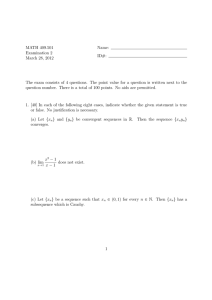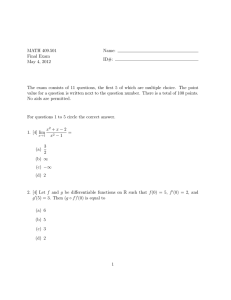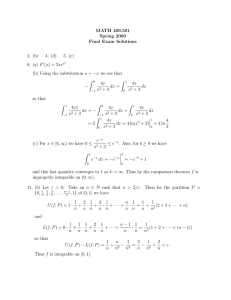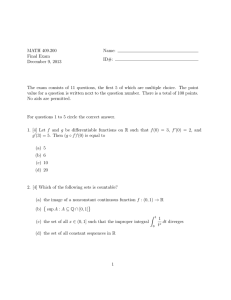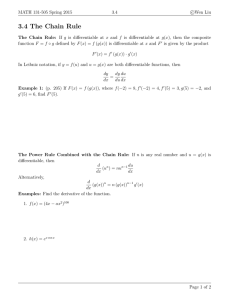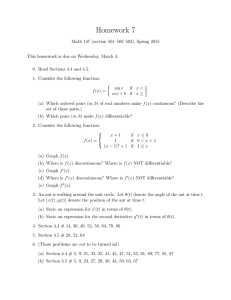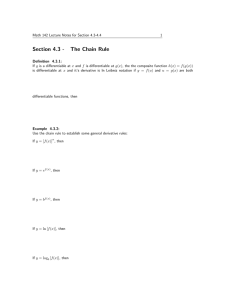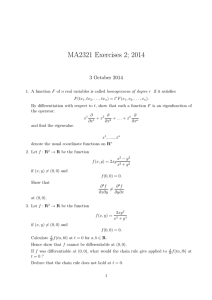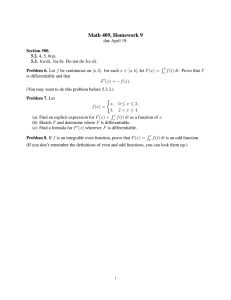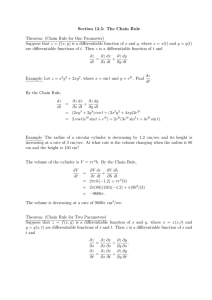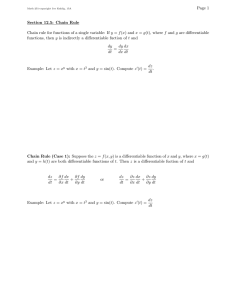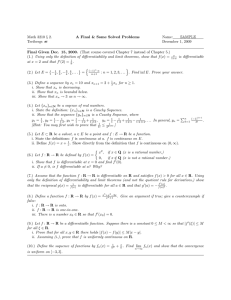MATH 409.503 Name: Final Exam December 2014
advertisement
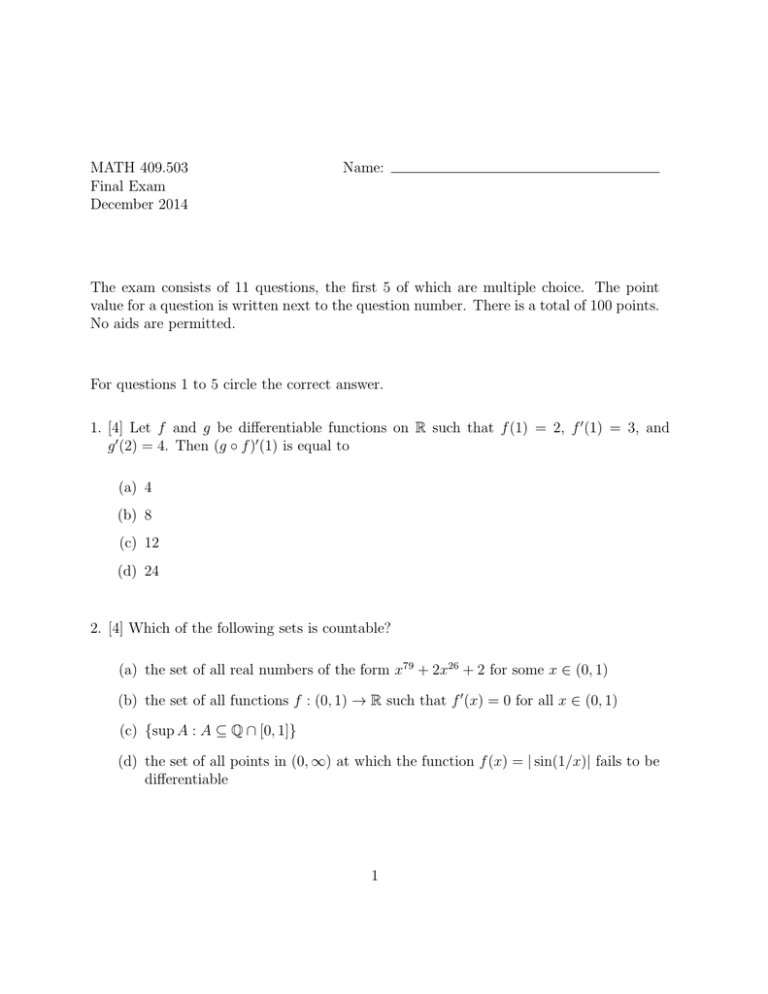
MATH 409.503
Final Exam
December 2014
Name:
The exam consists of 11 questions, the first 5 of which are multiple choice. The point
value for a question is written next to the question number. There is a total of 100 points.
No aids are permitted.
For questions 1 to 5 circle the correct answer.
1. [4] Let f and g be differentiable functions on R such that f (1) = 2, f 0 (1) = 3, and
g 0 (2) = 4. Then (g ◦ f )0 (1) is equal to
(a) 4
(b) 8
(c) 12
(d) 24
2. [4] Which of the following sets is countable?
(a) the set of all real numbers of the form x79 + 2x26 + 2 for some x ∈ (0, 1)
(b) the set of all functions f : (0, 1) → R such that f 0 (x) = 0 for all x ∈ (0, 1)
(c) {sup A : A ⊆ Q ∩ [0, 1]}
(d) the set of all points in (0, ∞) at which the function f (x) = | sin(1/x)| fails to be
differentiable
1
2
3. [4] limx→0+ (1 + 2x2 )1/x =
(a) e
(b) e2
(c) 1
(d) 2
4. [4] On which of the following intervals is the function
2
x + 1, x < 0
0,
x=0
f (x) =
5
x − 1, x > 0
uniformly continuous?
(a) (0, 1)
(b) [−1, 1]
(c) [0, 2]
(d) [−1, 0]
5. [4] Which of the following sequences is Cauchy?
(a) {(−1)n }∞
n=1
R1
(b) { 0 xn dx}∞
n=1
(c) {en }∞
n=1
(d) {ln(n)}∞
n=1
2
6. [24] In each of the following 8 cases, indicate whether the given statement is true or
false. No justification is necessary.
(a) The sequence
R 1/n
0
∞
sin(3x17 + 1) dx n=1 converges.
(b) Every bounded function on [0, 1] is integrable on [0, 1].
∞
∞
(c) If {xn }∞
n=1 is a Cauchy sequence and {yn }n=1 is a bounded sequence then {xn yn }n=1
is a Cauchy sequence.
(d) The function f (x) =
Rx
0
|t| dt is differentiable on (−1, 1).
3
(e) The function f (x) = x3 e4x is increasing on the interval [−1, 1].
(f) Every nonempty subset of (−∞, 0) has a supremum.
(g) Let f be a continuous function on [0, 1]. Then for every partition P of [0, 1] the
lower and upper Riemann sums of f over P satisfy L(f, P ) 6= U (f, P ).
(h) Let f : [0, ∞) → R be a continuous function such that limx→∞ f (x) = 0. Then f
has a maximum value on [0, ∞).
4
7. [12] (a) State the completeness axiom for the real numbers.
(b) State the Intermediate Value Theorem.
(c) State the Mean Value Theorem.
5
8. [10] (a) Define what it means for a bounded function f on a closed interval [a, b] to be
integrable on [a, b].
(b) Define the function f : [0, 1] → R by
1,
2,
f (x) =
3,
x=0
0<x<1
x = 1.
Prove directly from the definition of integrability that f is integrable on [0, 1].
6
9. [12] (a) State what it means for a function f : R → R to be differentiable at a point
a ∈ R.
(b) Give an example, with justification, of a function f : R → R which fails to be
differentiable at 0.
(b) Give an example of a differentiable function f : R → R such that f 0 fails to be
continuous at 0. No justification required.
7
10. [12] Compute f 0 for each of the following functions f : R → R.
(a) f (x) = e2x sin(x2 )
x
Z
(b) f (x) =
0
Z
(c) f (x) =
et
dt
3 + t2
1+x2
ln(t3 ) dt
1
8
(cos x)2
11. [10] Prove that the function f (x) = √
is improperly integrable on (0, ∞).
x4 + 1
9
